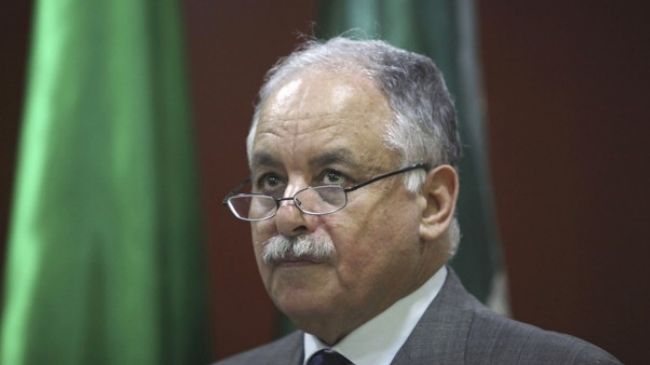Tripoli, 25 June:

Tunisia extradited former prime minister Al Baghdadi Ali Al-Mahmoudi to Libya yesterday, making him the first senior official to . . .[restrict]be returned for trial since the overthrow of Muammar Qaddafi last October.
Al-Mahmoudi, who served as prime minister from 2006 until last year, fled to Tunisia during the revolution and was arrested for illegally entering the country in September.
The decision, which was taken by Tunisian Prime Minister Hamadi Jebali, has sparked a fierce row with President Moncef Marzouki, who called the move “illegal”.
“The presidency of the Republic expresses its rejection of the decision of the head of government to extradite M. Mahmoudi and considers this decision is illegal, all the more so because it has been done unilaterally and without consulting the president of the republic,” a statement from Marzouki said.
“The extradition decision, signed by the head of the Tunisian government, constitutes a clear violation of our country’s international commitments and those towards the UN,” he added.
However, a statement from the Tunisian government said the extradition did not require the president’s signature.
It said the decision to extradite had been made following a report by a Tunisian delegation to Tripoli, which found that the conditions for a fair judicial process had been met.
Rights groups have opposed any attempt to extradite Al-Mahmoudi and other senior Qaddafi figures back to Libya, claiming they could be mistreated and would not be afforded a fair trial.

Yesterday, Al-Mahmoudi’s lawyer Mabrouk Khorchid described the decision to extradite Al-Mahmoudi as “a state crime” and “against human rights”.
“This is a sad moment for human rights in Tunisia. I think he’s going to be tortured and treated illegally and believe that those who handed him over bear part of the responsibility,” Khorchid added.
The Libyan government has has consistently maintained that it will not mistreat former Qaddafi officials returned to its custody and that they will be given a fair trial, a point repeated yesterday by Prime Minister Abdurrahim Al-Kib with regards to Al-Mahmoudi:
“The Libyan government reiterates that the accused will receive good treatment in accordance with the teachings of our righteous religion and according to international standards of human rights,” he said.
He also expressed Libya’s “profound thanks and appreciation to the brotherly nation of Tunisia” for the extradition.
The prime minister said Al-Mahmoudi would be held in a prison under the supervision of the ministry of justice and the judicial police until he could be brought to trial.
The government in Tripoli has been seeking the extradition of a number of former Qaddafi officials from their various sanctuaries in neighbouring countries for months, with little success.
Whilst human rights and fair trial concerns have frequently been cited, others have argued that such individuals represent useful bargaining chips which certain governments, not necessarily Tunisia’s, are reluctant to relinquish.
Either way, the authorities will hope yesterday’s extradition sets an important precedent that a newly-empowered government put in place after next month’s democratic elections will be able to build upon.
[/restrict]








